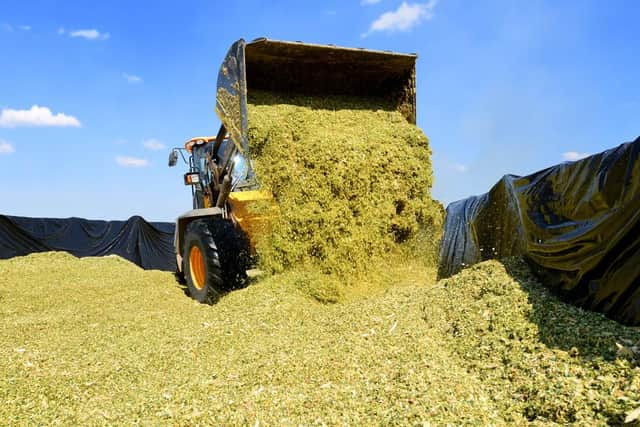Warning to farmers not to pollute Nottinghamshire waterways
and live on Freeview channel 276
Rupert Wailes-Fairbairn fears that too many farmers haven’t checked their silage clamps are airtight and leak-free because they aren’t fully aware of the dangers of poor silage storage.
If the effluent from the silage clamps gets into the waterways, it can have a devastating impact on fish, wildlife and ecosystems as it could be up to 200 times more toxic than untreated sewage
Advertisement
Hide AdAdvertisement
Hide AdMr Wailes-Fairbairn said: “Silage effluent is extraordinarily toxic - so the damage it can cause to watercourse eco-systems is profound.


“Once the effluent is in the ground and reaches a watercourse, it is very difficult to contain and it can find its way into springs, wells and boreholes and public water supplies which will require immediate action by an Environment Agency approved contractor.
“Farmers must therefore make every effort to ensure their clamps are well maintained, and that includes all pipes and tanks as well.”
According to the Environment Agency, there has been a steady rise in the number of water pollution incidents in recent years, from fewer than 6,500 in 2015 to almost 7,600 in 2019.
Advertisement
Hide AdAdvertisement
Hide AdIf farmers are found to be negligent in their storage of silage and other polluting materials, such as agricultural fertiliser and slurry, they face hefty fines.


Mr Wailes-Fairbairn emphasised that whilst insurance cover is available for the clean-up, it is not available for the substantial fines that could result from action taken by the Environment Agency.
He added: “Farmers have many HSE and Environment Agency standards to comply with and must keep ahead of the game to avoid these fines.
“Now is the time to do robust checks on the clamp, before the first cut of the season.
Advertisement
Hide AdAdvertisement
Hide Ad"Measures should include checking that the floor is sound, that cracks are properly repaired and that wall coatings and overlapping protective films are intact.
“Collection channels should be regularly cleaned out and drains checked to ensure they are watertight.
“This proactive approach will not only allow farmers to rest easy in the knowledge they are fully compliant with working practices and not polluting the environment, but also that they won’t suffer an unexpected financial hit if things go wrong.”